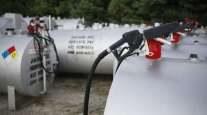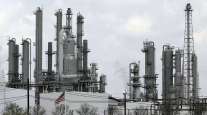Opinion: Engine Warranties and Diesel Additives
By Gary Pipenger
President
Amalgamated Inc.
For many years now, diesel engine manufacturers have continued to allude to equipment buyers about avoiding the use of diesel fuel additives. This position is expected, given the fact that engine manufacturers warranty the new equipment and its viability for extended periods of time after the purchase.
Yet while engine manufacturers may not specifically say they will void the equipment warranty if a buyer uses an additive, the inference to equipment buyers regarding not using additives is as clear as it is illegal.
To void the engine warranty, the manufacturer must first prove the additive is at fault. It can be a very expensive undertaking to discover what is or is not at fault. By excluding all additives, the manufacturers attempt to insulate themselves from liability and push the burden of proof and responsibility onto the consumer.
The truth is, some diesel engine manufacturers refer to their own proprietary diesel fuel additives, misleading unwary consumers into assuming this is the only warranty-approved product.
In 1975, the U.S. government recognized potential restraint-of-trade situations being created by manufacturers that offer warranties — including the engine manufacturers — and passed the Magnuson-Moss Act. This legislation, among other things, makes it illegal for any manufacturer to void a warranty by restricting common consumer practices such as the application of a fuel additive.
The Magnuson-Moss Act also makes it illegal for an engine manufacturer to advise an equipment buyer that he can use “only” a specific fuel additive. This is defined in the Act as a “tie-in sales provision” and also is in “restraint of trade” and “illegal.”
It is unfortunate engine manufacturers do not accept the reality that all distillate (diesel) fuels are different and no diesel fuel sold today is the perfect fuel for all diesel engines.
Diesel fuels are expected to meet the required ASTM International — formerly known as the American Society for Testing and Materials — D-975 Specification minimums for sale, but that does not mean these fuels necessarily will provide the best possible operational results when used.
For example, some engines are spec’d for optimum efficiency utilizing a 50-plus cetane fuel. However, ASTM D-975 allows for a minimum of 40 to be legal for sale in the United States. That is a tremendous potential variance to leave up to chance.
There is no universal fuel additive to fix all the diesel fuels and eliminate all operability issues that might be encountered with different fuels. There is a definite need to incorporate certain specific chemistries (additives) into finished diesel fuels to resolve the inherent deficiencies and allow them to operate properly in the engines manufactured.
Identifying the right chemistries is an art as much as is the compounding of those chemistries into specific performance additive products that will achieve the desired results. It may sound challenging, but it can be done.
Additive formulations should en-hance the performance quality of distillate fuels into the most economical premium diesel fuel possible. The right additives should work to compensate for the negative aspects of diesel fuels and allow the engine to properly transform all of the fuel Btu content into usable work energy (horsepower).
Diesel fuel additives containing the right amounts of chemistries will provide cost savings for diesel fuel users when applied correctly in all applications in all types and qualities of distillate fuels.
The fuel user must test a chosen fuel additive in a particular diesel fuel and in specific diesel-powered equipment to verify marketing claims and prove cost savings. These steps take time, but they should not be ignored, as additive marketer claims must never be taken for granted. “Trust but verify” is the best advice for the fuel-additive buyer.
Engine manufacturers design and build equipment that they hope will perform well for the buyer and meet Environmental Protection Agency regulations. Unfortunately, the industry-recognized ASTM D-975 Specification for Diesel Fuels is only a guide for the fuel producers, and it does not represent the best possible product for all diesel engines. It is important the engine manufacturers accept this fact.
When diesel engine manufacturers accept the need for including the right fuel additives in the correct ratios, the fuel buyer can effectively protect the life and operation of the equipment purchased. Additives for improving the quality and performance of the diesel fuel ultimately will be an enormous benefit for the engine manufacturers and the fuel user.
Experience has taught me that there is no such thing as typical diesel fuel. All diesel fuels, even those from the same refiner and same terminal operation, can vary and perform differently in different engines. Keeping one’s head buried in the sand about the quality of available diesel fuel in the American market is the passive-aggressive way to deflect responsibility when an engine breaks down.
Drawing from pop culture, when the Millennium Falcon’s engines failed to start in “The Empire Strikes Back,” Han Solo protested, “It’s not my fault!”
Maybe he should have been using the right additive, too.
Pipenger, the owner of Amalgamated Inc., has 40 years of fuel-industry experience. Fort Wayne, Indiana-based Amalgamated is an independent custom blender and supplier of synergistically balanced distillate fuel additive chemistries specifically matched to the fuel for optimum engine application.




